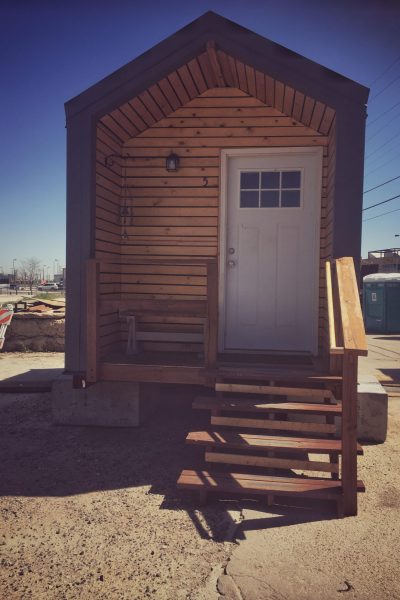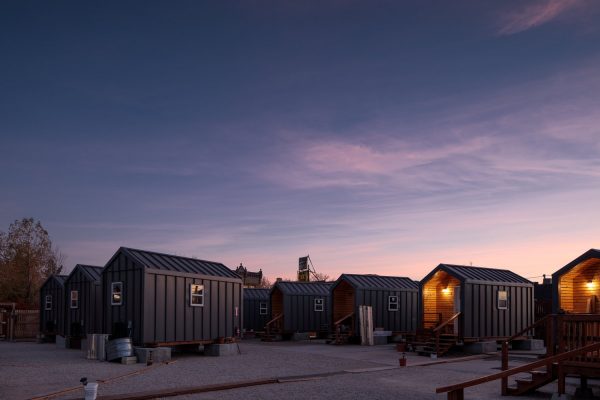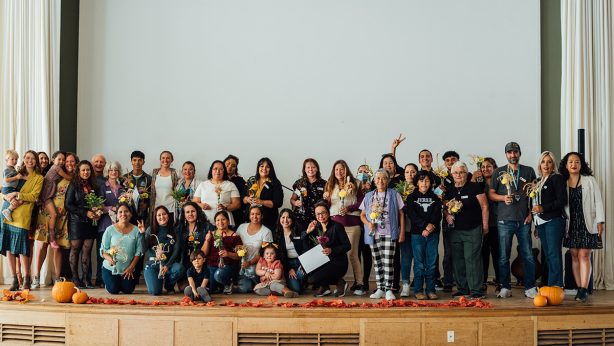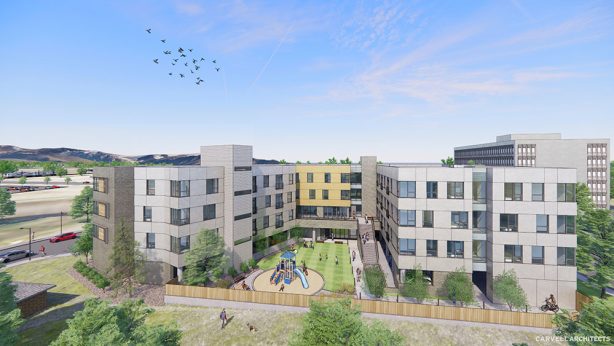Tiny Home Resident Remembers “Another Life” Before Homelessness
Welcome to the 5th installation of ULC’s Resident Series! In alignment with our mission of creating equitable communities through affordable real estate, we wanted to celebrate our residents and share their stories. After all, they are the reason we do what we do. We hope you enjoy! For past installations of the Resident Series, visit our News page here.
Luna Grier was just 26 years old when she packed her bags and left the only life she knew in New Jersey. With two suitcases in tow, Grier left behind an abusive partner and unsupportive family. Once her then-boyfriend refused to let her get a job – or even own a car – Grier knew she needed to leave.
On June 1, 2017, Grier arrived in Denver, Colorado. While she had chosen a place nearly 2,000 miles from home, Grier had kept in touch with a friend from college who offered her a spare room while she reacquainted herself with a new city. Unfortunately, the friendship did not last. Just one week into her stay, Grier was given two hours to pack her bags and go. She was told it just wasn’t going to work.
It was then that Grier realized she was homeless. She knew no one. She was in completely uncharted territory, and found herself living in a big city for the first time in her life. During her first few weeks of homelessness, Grier lugged around her suitcases while hopping from one homeless shelter to the other. Showers were often filled with needles, and each shelter felt less safe than the last. Grier felt as though she had run out of options, and did not know how to pull herself out of what felt like a downward spiral.
“I just steadily went down in my socioeconomic status until I was on the streets,” Grier recalls. “I was frightened, I no longer felt secure and it was a completely devastating and dehumanizing experience.”

Despite a traditional mindset that most people experiencing homelessness have brought it upon themselves, Grier is a prime example that homelessness can happen to anyone. The loss of a job, unexpected medical bills and an abusive relationship are all common cases leading to homelessness. For Grier, her path towards homelessness started in her early 20’s when her father lost his job.
She describes it as another life. Grier grew up in a middle class family, and always remembers feeling comfortable. After graduating high school, Grier left home for college, like many middle class Americans. When her father lost his job, she could no longer afford school and was forced to drop out. In years to follow, Grier’s mother would pass away, and her relationship with her father would deteriorate. Adding a manipulative and abusive relationship to the mix only furthered Grier’s darkening circumstances.
Grier explained that she never thought that on a hot day in June she would be living in Denver, Colorado looking for a homeless shelter. She recalls the paralyzing anxiety caused by staying in multiple homeless shelters each week. Through a woman she met during her first week on the streets, Grier was invited to the Gathering Place – a daytime drop-in center that serves women, children and transgender individuals experiencing homelessness and poverty. While Grier felt much safer here, it did not offer a solution to overnight housing.
After a few weeks, Grier was admitted entry into the Dolores Project. Founded in 2000, the Dolores Project provides safe and comfortable shelter to women and transgender individuals experiencing homelessness. They also act as an advocacy group, supporting solutions to end homelessness. Her time here helped Grier get somewhat settled and ready for her next step: finding a job. This can be a daunting task for anyone, especially when you have no address. Grier recalls showing up to interviews with both suitcases, as it is policy for most shelters to require you to take your belongings with you each day. Thankfully, Grier found a job working at the Kings Soopers’ service desk downtown, and still has this job today.
After living at the Dolores Project for a few months, Grier was invited to become one of the first residents at the Beloved Community Tiny Home Village. Opened in July 2017, Beloved Community was created as an innovative approach for those experiencing homelessness. The village consists of 11 sleeping units, a shared bathing facility and a community gathering space. Colorado Village Collaborative (the group of partners behind Denver’s first tiny home village for the homeless) currently leases the land from Urban Land Conservancy for $1 per month. Beloved Community will be moving locations later this year, approximately 1 mile NW of their current location to TAXI in the RiNo neighborhood. The village has been extremely successful in housing people like Luna Grier, who need help getting back on their feet and transitioning to long-term housing stability.

Grier has lived at Beloved Community for nearly a year. She spent her first nine months with a roommate, and was later offered a private home all to herself. For many, a 100sf-foot house in a tiny home village might seem like a challenging transition, but for Grier it was the first time she had a door with a lock since childhood.
“People tend to blame you for your situation,” Grier explained. “And if you are judging me, I’m guessing you have never been a woman suffering through domestic violence with no working lock. If there is one thing I’ve learned it is that self-worth comes with a price tag.”
Luna’s story is yet another example of how a stable home is the price tag for safety, self-worth and opportunity.




